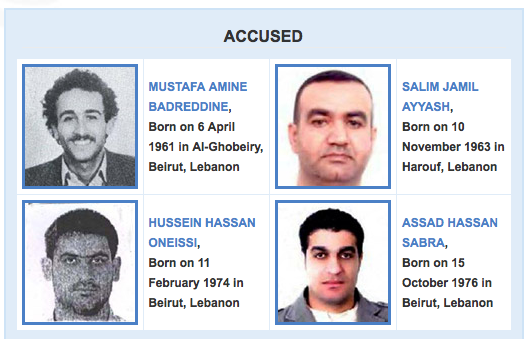Excluding Hezbollah's lackluster response against Israel following the border incident near Mount Dov two weeks ago, and the finger of blame pointed by many Lebanese over the deadly explosion that destroyed swathes of Beirut, the terror group will in the coming days face a much greater challenge – this time against the International Criminal Court.
The massive disaster that beset Lebanon's capital left scores of dead, wounded and displaced people, prompting the ICC to delay by 10 days its decision in the investigation into the 2005 assassination of former Lebanese prime minister Rafik Hariri.
5 View gallery
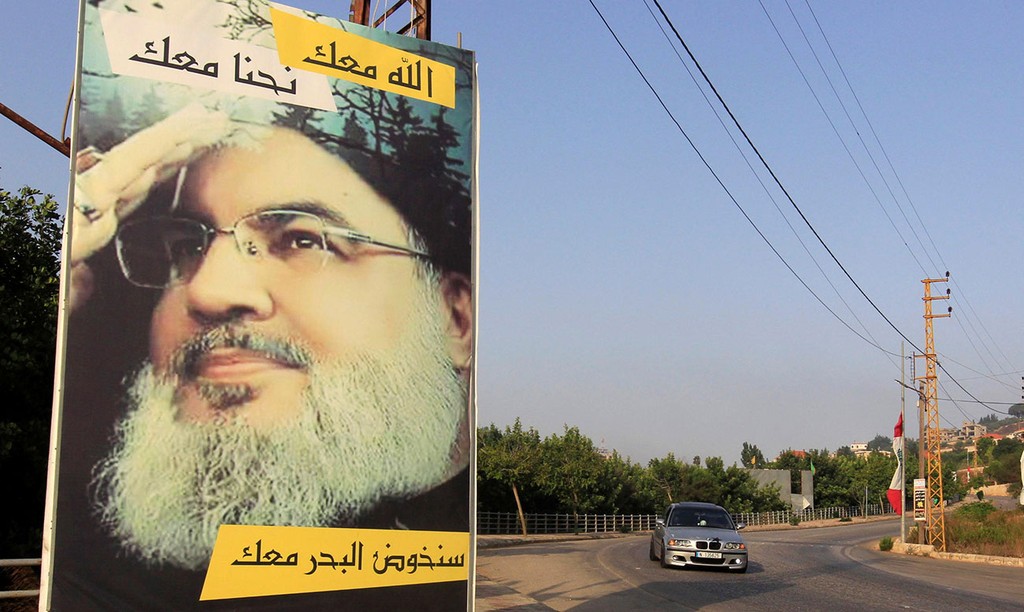

A billboard of Hezbollah leader Hassan Nasrallah in southern Lebanon
(Photo: Reuters)
Following international and internal Lebanese pressure, the special tribunal was formed by the ICC in an effort to determine who assassinated Hariri.
Over 3,000 documents and 700 witnesses were examined, with the panel even able to reconstruct phone calls between the head of the Syrian Intelligence Service and a Hezbollah intelligence agent - who at the time knowingly hid information on the two IDF soldiers captured by the terror group in the 2006 cross-border raid that preceded the Second Lebanon War.
The tribunal further uncovered that the Syrians used a meeting with Hariri prior to his assassination to identify his cell phone and then track his movements.
5 View gallery
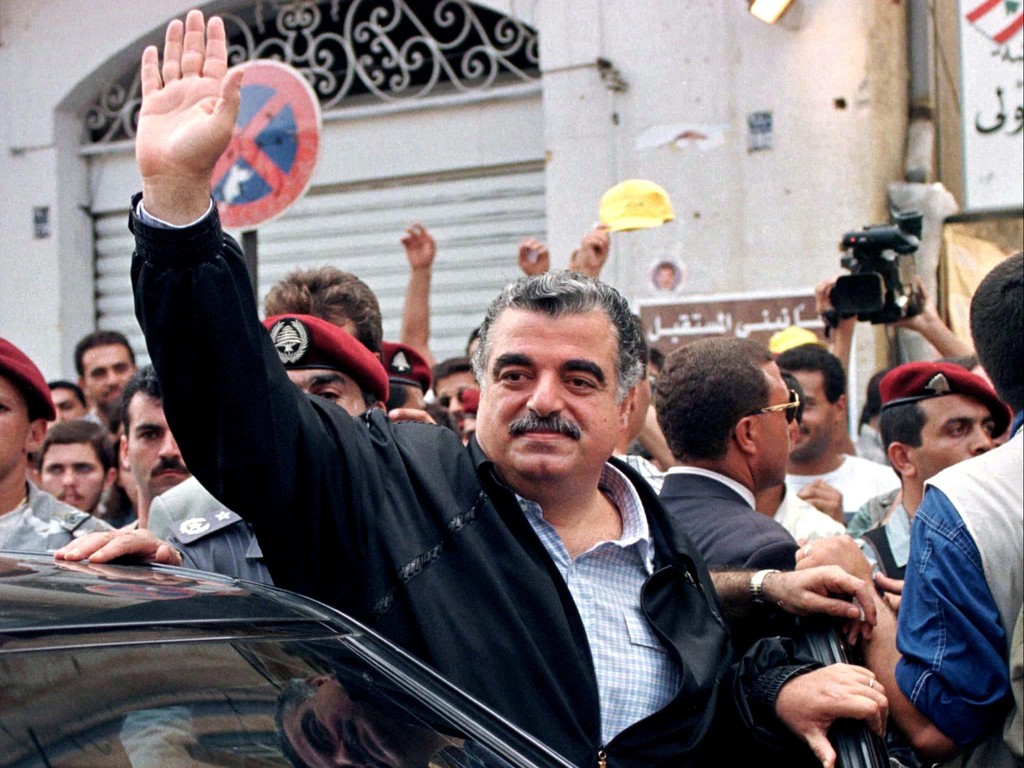

Then Lebanese Prime Minister Rafik Hariri waves to supporters after voting in Beirut during the September 1996 elections
(Photo: Reuters)
Despite justice being a slow affair, the special prosecutor concluded two years ago that Hezbollah was behind the murder, with Syria as its accomplice.
The final verdict, which is set to be issued next week, will put an end to the nearly 15-year investigation.
Hezbollah is very worried, with its leader Hassan Nasrallah announcing that the organization does not deal with "political" issues meant only to serve Israel and the U.S.
5 View gallery
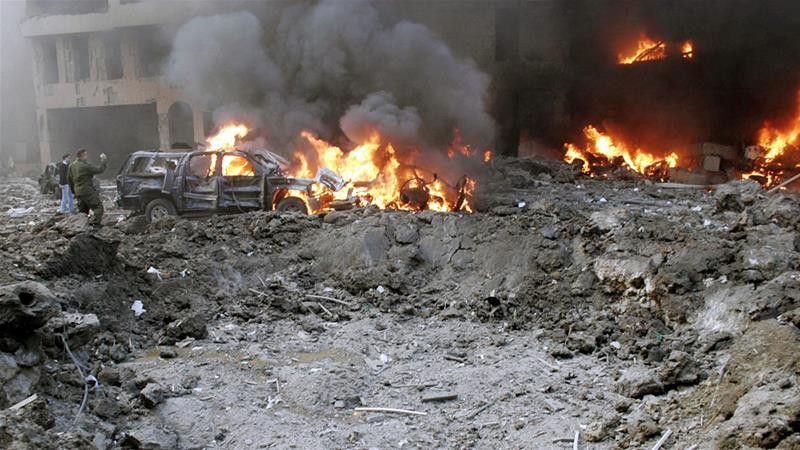

The aftermath of the bomb that targeted the motorcade of Rafik Hariri in Beirut on February 14, 2005, killing the former prime minister and 21 others
(Photo: AP)
In reality, the Iran-backed terror group exerted a lot of pressure behind the scenes to ensure there would not be a final verdict. At a certain point it seemed to be successful, when Hariri's son, former prime minister Saad Hariri, announced he did not wish to avenge his father's death and hinted that he had no wish to tangle with Hezbollah.
But the reality in Lebanon today is very different: Hariri is part of the opposition, the country is doubly burdened by the coronavirus pandemic and severe economic collapse and ripping apart at the seams with violent protests in the streets.
Hariri has now changed his mind and will make a symbolic appearance at the reading of the Pandora's box of a verdict.
In a broadcast speech, Nasrallah tried to shake off any connection between the organization and the bombing, knowing full well such a link would create tensions with the Lebanese people he would not be able to control.
As such, the verdict holds great importance.
Will the tribunal, which is an internationally appointed body, take into consideration the economic, social and political difficulties Lebanon is enduring and soften its final decision or will stick to the value of moral purity and hand down a professional and just verdict?
5 View gallery
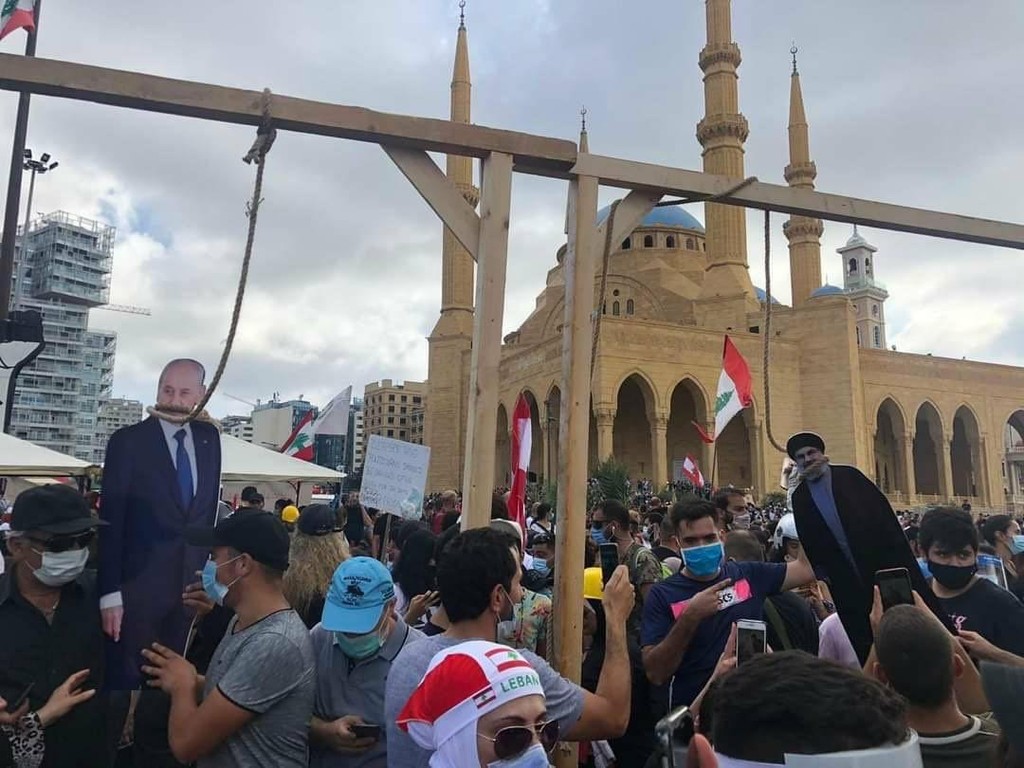

Protesters in Beirut hanging effigies of Lebanese officials, including Hezbollah chief Hassan Nasrallah
If it chooses the first option, Hezbollah is strengthened domestically and will mercilessly seize power over the country.
In the latter scenario, Hezbollah becomes not only a terror organization that assassinated a former prime minister, but also a criminal one, empowering its opponents at home and abroad, putting pressure on the group to change direction.
If such a situation occurs, it is not too far-fetched to assume the group would embark on another military adventure with Israel in order to extricate itself from its plight.
But only continued pressure on Hezbollah can restrain it, minimize its influence and save a collapsing Lebanon.
Beirut-born Itzhak Levanon is the former Israeli ambassador to Egypt and to the United Nations in Geneva


